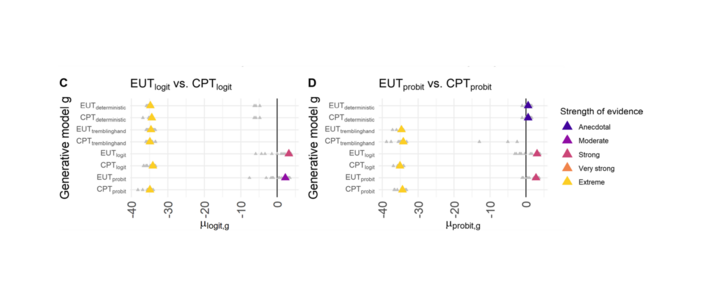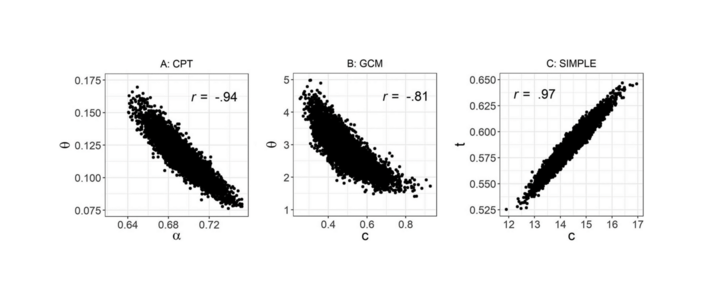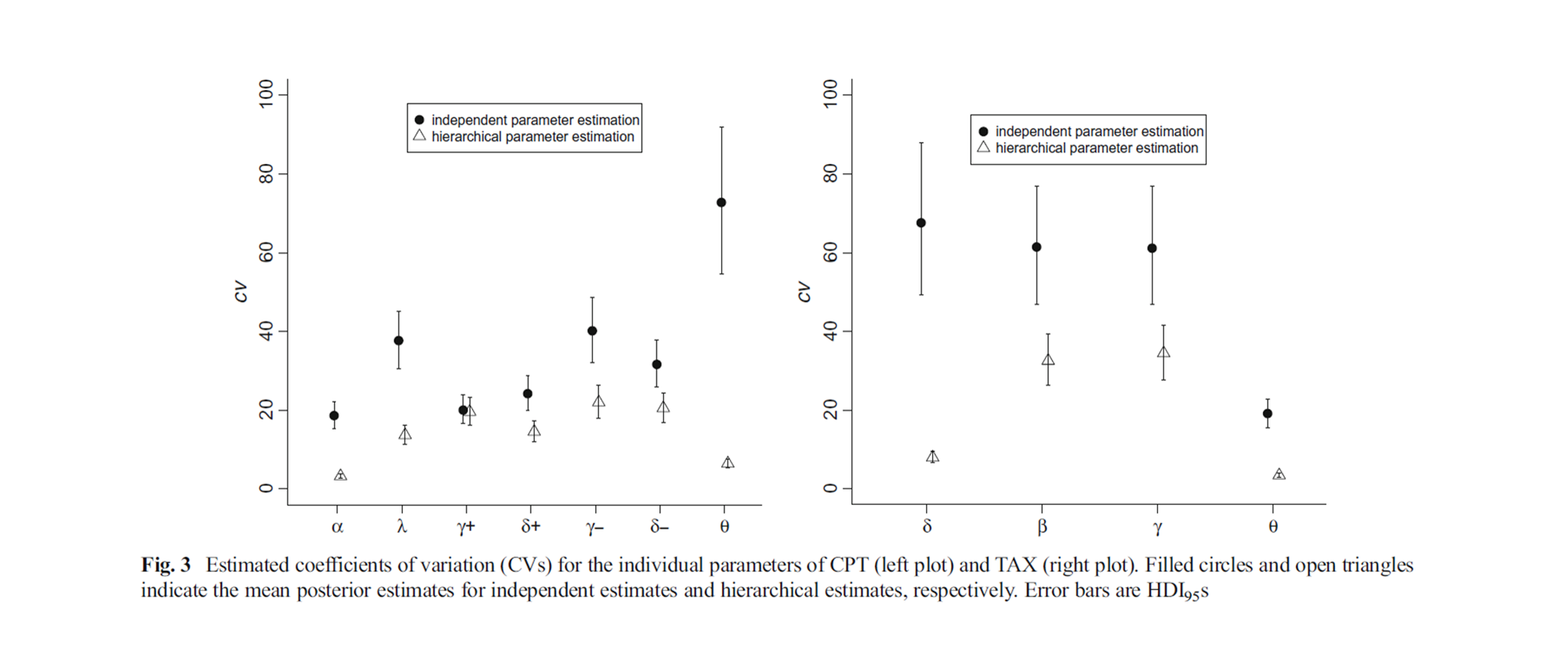Cognitive Modeling
Formal modeling is a core activity in the study of cognitive capacities such as reasoning, decision making, or learning. How exactly the mind exercises these capacities cannot be directly observed. Therefore, we use formal models to represent, distinguish, and measure the underlying information processing steps. That is, formal cognitive models explicate our assumptions about how the mind transforms information from the memory and environment to exercise cognitive capacities and perform a certain behavior of interest.
The assumptions of a model can affect which conclusions we can draw from empirical data about human information processing. For instance, so-called choice rules are commomly used to map an hypothesized evaluation of choice options onto predictions about observable choice behavior. In simulation studies, Zilker (2022) demonstrates that the evaluations within different models can lead to the same or different choice predictions depending on which choice rule is applied. These analyses highlight the importance of testing the robustness of our conclusions about key aspects of cognition with respect to seemingly secondary assumptions. In another study, Krefeld-Schwalb, Scheibehenne, and Pachur (2022) show that the interpretation of cognitive models is often complicated by the fact that parameter estimates of the choice rule and the core model are interdependend. The paper demonstrates how appropriate modifications in the model assumptions can reduce these interdependencies and improve the interpretability.



